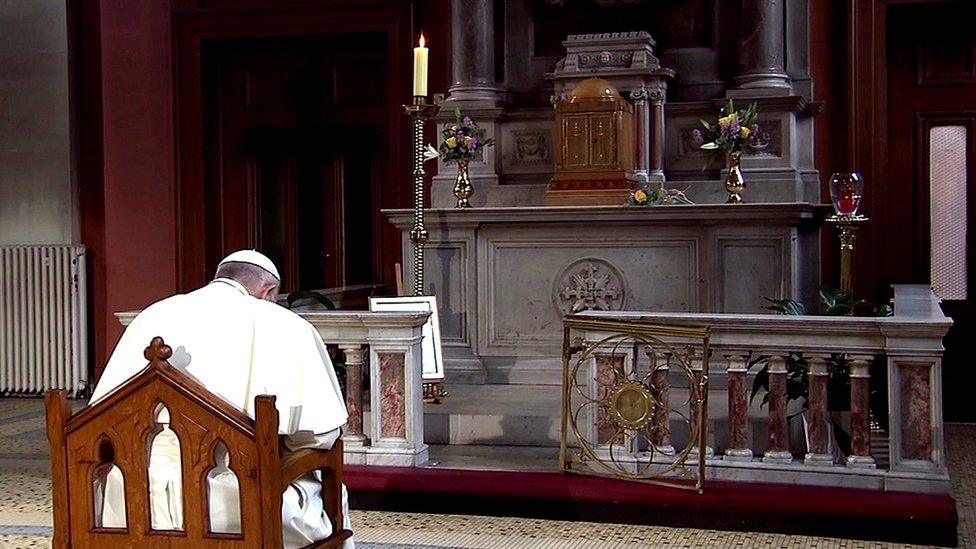Papal visit: How Ireland received Pope Francis
- Published
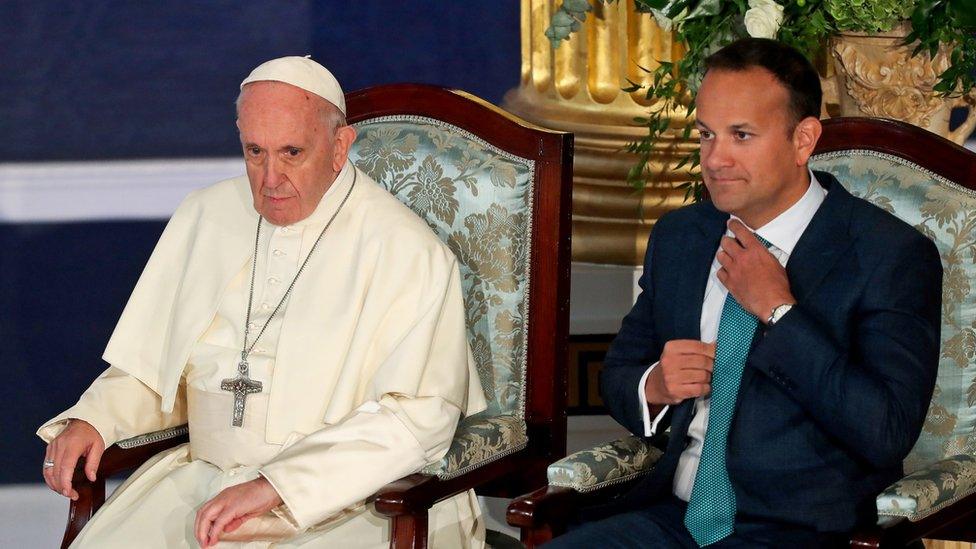
This is the first papal visit to Ireland since half of the island's population turned out to greet Pope John Paul II in 1979
It could be a case of expectations versus reality - the expectation of a charismatic kneel to the ground and a kiss on the tarmac, of fanfare and hysteria.
But that was in 1979 and this is now.
Nearly 40 years after Pope John Paul II received an emphatic welcome, Pope Francis is visiting a different Ireland.
The Republic of Ireland today is more secular, far more liberal and, in many cases, angry.
The clerical sex-abuse scandals, the mother-and-baby homes, and the history of a Church covering its tracks has lessened the institution's influence over its Irish flock.
Protesting outside Dublin Castle as the Pope made a quick-stop tour of the city's streets, Savia, a group of survivors and victims of institutional abuse, laid out children's shoes tied in black ribbon in memory of those who had been robbed of their childhood by priests.
Pope Francis said he was ashamed of his Church's failure to adequately address the "repellent crimes" of sex abuse by clergy
Even the country's prime minister, Taoiseach Leo Varadkar, an openly gay man, set aside the pleasantries when he asked the Pope to "bring justice and truth and healing for victims and survivors".
Perhaps it is no wonder that Pope Francis's visit is more of a sombre affair than that of his Polish predecessor.
Sunday rituals
For those who have been campaigning for abuse victims, some might take solace in the Pope's admission that he was ashamed by the Church's failure to address the "repellent crimes" of sex abuse.
They might also be consoled by the fact he spent 90 minutes in private with eight abuse survivors on Saturday afternoon.
But others might think that is not enough.
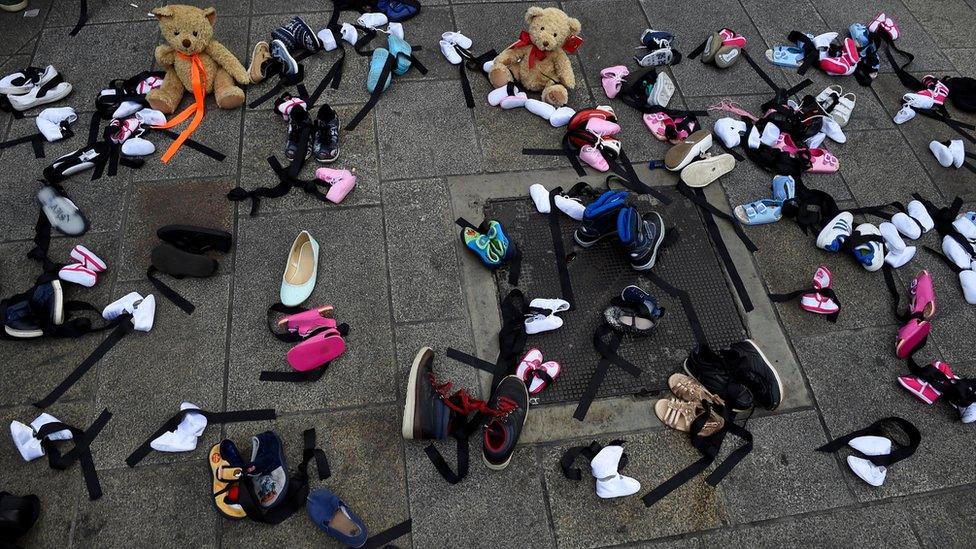
Savia, a group of survivors and victims of institutional abuse, laid out children's shoes tied in black ribbon as part of a protest
In the last three years, Ireland has voted in liberal abortion laws and same sex marriage.
Neither referendum had the same tight margins as the divorce referendum in 1995. Both were a landslide in favour of a more liberal order.
While you might still come across the odd Sacred Heart statue in a more traditional home in rural stretches of Ireland, strong faith is less common than it was in 1979.
Catholic Ireland is now home to many who go to Mass for Christmas, weddings and funerals, but generally ignore the Sunday ritual.
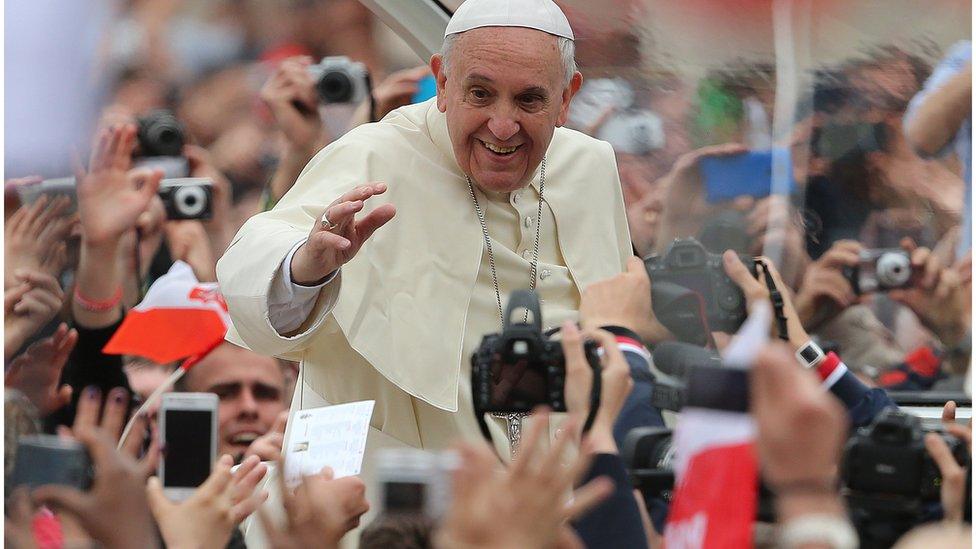
Pope Francis was greeted by crowds in Dublin - but not the masses who turned out to welcome John Paul II in 1979
Crowds lining the streets of Dublin to greet the Pope on Saturday were one-person deep.
Moving through these crowds was easier than trying to get through the city for the St Patrick's Day parade.
Plenty in the crowd had come from abroad especially for the visit.
While Ireland has also become more international in the last 39 years, as Dubliners wandered past the barriers en route to the shops, it was difficult to grasp the Irish enthusiasm.
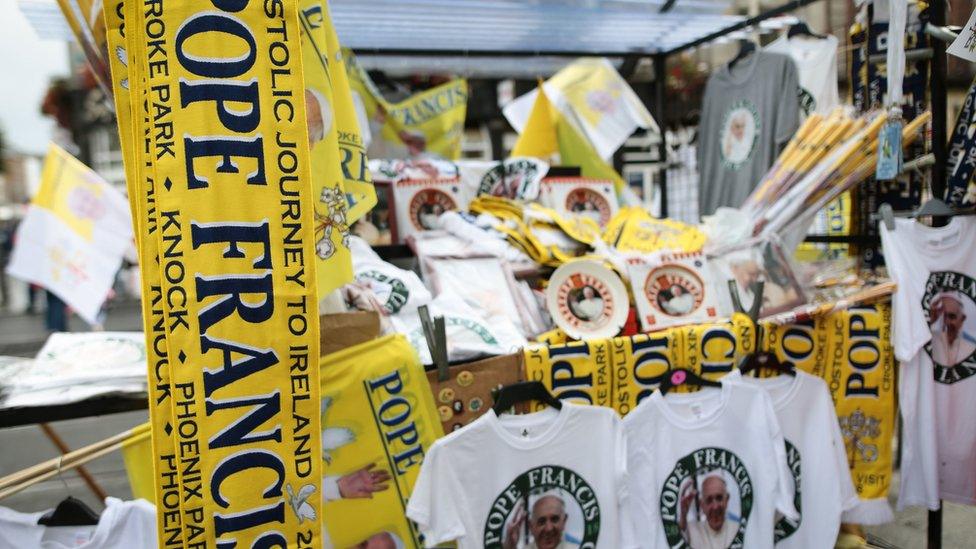
Memorabilia marking the Pope's visit to Ireland has been on sale across Dublin
At Saturday night's Festival of Families event - complete with performances by world-renowned tenor Andrea Bocelli, country singer Nathan Carter, and acclaimed Irish singer Daniel O'Donnell - the Croke Park stadium of 82,300 was not full to capacity.
And the weather dampened proceedings - if not spirits - on Sunday morning as the Pope visited the Marian shrine at Knock.
Eyes will now be on Dublin's Phoenix Park later on Sunday, to see if crowds will show up for the visit's closing Mass in greater numbers.
In his speech welcoming the Pope, Mr Varadkar said the time had come for Ireland to build a new relationship - "a more mature relationship" - between Church and state.
These words were indicative of the Republic of Ireland's move towards an arms-length relationship with an organisation that once wielded its power over all arms of the state.
Ireland - between two popes

Papal visit to Ireland: Itinerary highlights
Saturday 25 August
08:15 - Departure by plane from Rome for Dublin
10:30 - Arrival at Dublin Airport for official welcome
10:45 - Transfer to Áras an Uachtaráin (Irish president's residence)
11:15 - Welcome ceremony with President Michael D. Higgins
12:10 - Arrival at Dublin Castle for meeting with authorities, civil society and diplomatic corps
15:30 - Visit to St Mary's Pro Cathedral
16:30 - Private visit to the Capuchin Day Centre, a centre for homeless people
19:45 - Preside at the Festival of Families at Croke Park stadium
Sunday 26 August
08:40 - Departure by plane for Knock
09:45 - Arrival at Knock Shrine for visit to the Apparition Chapel and recitation of the Angelus
11:15 - Departure by plane for Dublin
12:30 - Lunch with the Papal Delegation
15:00 - Closing Papal Mass of the World Meeting of Families in Phoenix Park
18:30 - Farewell ceremony at Dublin Airport
18:45 - Departure for Rome
23:00 - Arrival in Rome

You can follow minute-by-minute updates on the Pope's visit here on the BBC News website.
You can watch live coverage of the visit on a special Newsline programme at 19:20 BST on BBC One NI.
Switch on for Sunday's Newsline showing highlights from the visit at 22:30 BST.
On radio, tune into BBC Radio Ulster on Saturday at 11:30 for live coverage with William Crawley and join Seamus McKee for a special extended The Sunday News at 13:00.
- Published20 August 2018
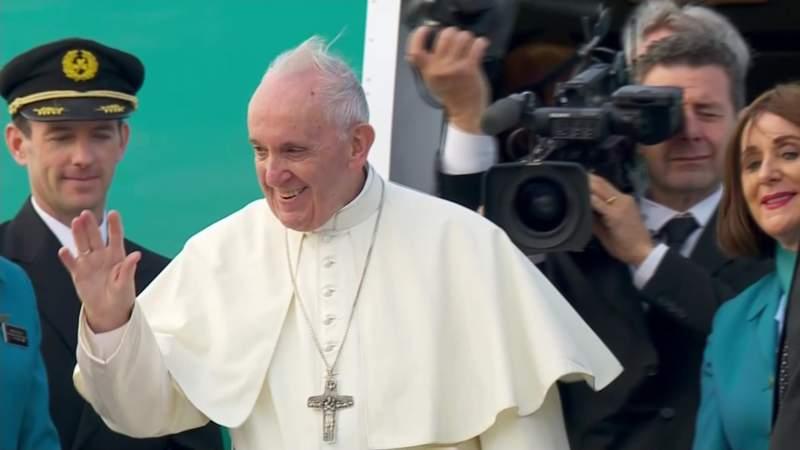
- Published25 August 2018
- Published5 October 2021
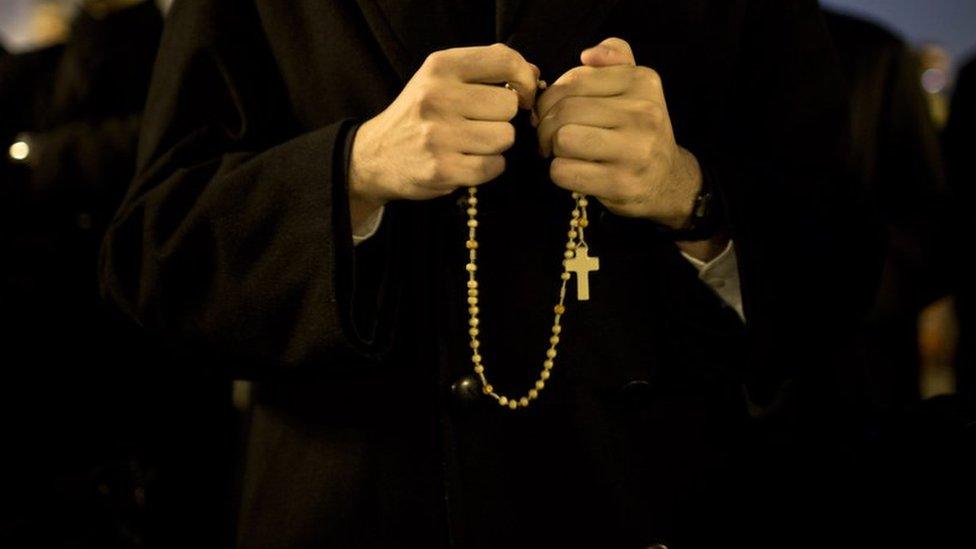
- Published24 August 2018
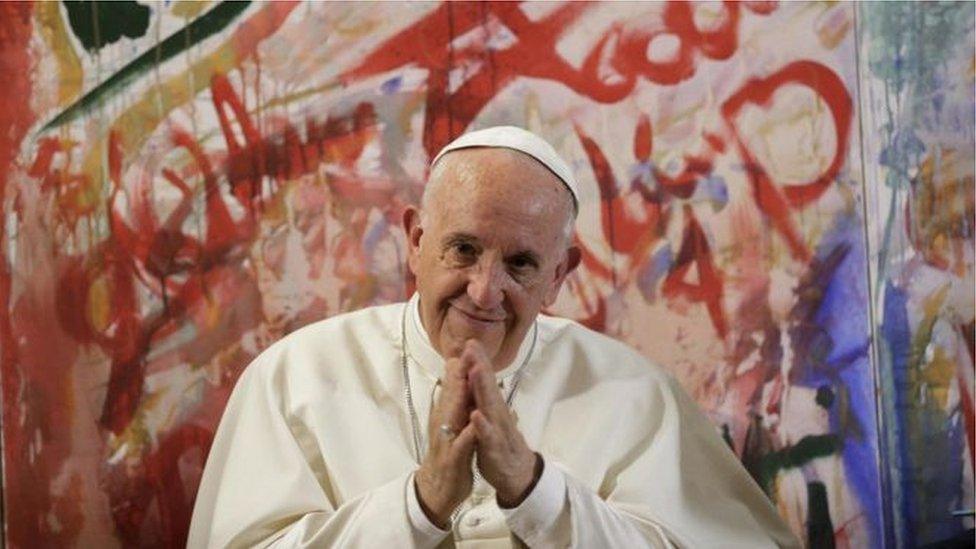
- Published25 August 2018
